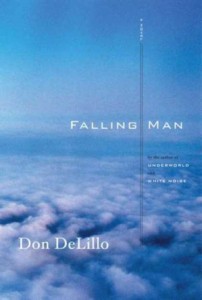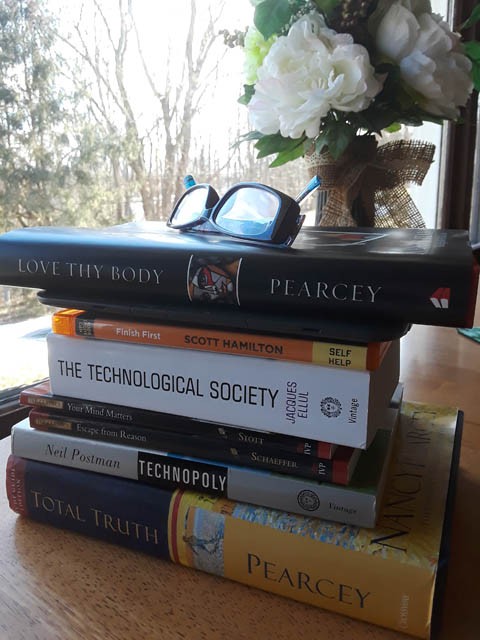Falling Man
 I finished Falling Man. It leaves me with the sense that I have inadequate categories for judging the story. My visceral reaction is that I didn’t enjoy it, but that’s hardly a judgment of the book’s literary qualities. There is a sensibility I can’t relate to there–a skepticism, a sophistication in the narrative voice as he observes these pathetic figures trying to cope with tragedy. It’s distasteful to me. Somewhere between the heavy-handedness of the didactic novel (”Gentle reader, don’t let this happen to you! Ahh, how dreadful the tragedy our heroine has fallen into through her own bad judgment…”) and the indifference of the postmodern novel is where I find my sweet spot.
I finished Falling Man. It leaves me with the sense that I have inadequate categories for judging the story. My visceral reaction is that I didn’t enjoy it, but that’s hardly a judgment of the book’s literary qualities. There is a sensibility I can’t relate to there–a skepticism, a sophistication in the narrative voice as he observes these pathetic figures trying to cope with tragedy. It’s distasteful to me. Somewhere between the heavy-handedness of the didactic novel (”Gentle reader, don’t let this happen to you! Ahh, how dreadful the tragedy our heroine has fallen into through her own bad judgment…”) and the indifference of the postmodern novel is where I find my sweet spot.
Having said that, I’m not so sure that what strikes me as indifference in this novel is really indifference. Maybe it’s more like helplessness.
DeLillo structures this novel around the relationship between several images of descent: the planes hurtling downward out of the sky; the staircases of the towers clogged with humanity descending to escape; the bodies descending from windows; the meaningless descent of the performance artist mimicking those bodies. All the people in the story are trying to come to grips with the psychic blow struck by 9/11, but since none of them succeeds, they come off looking more humane than the performance artist “Falling Man”–but their methods are no more effective.
The main failure is a failure to connect with other human beings. There’s simply no successful relationship in the novel. The crisis tests the faultlines of every relationship, and they try to come together, but in the end they’re still radically alone.
I guess as believers, the difference is that though we’re always alone in our individuality–we feel most alone when being most authentically ourselves–God is the great meeting place, the great reconciler. The image is of a restored family, a group of unique but interconnected individuals.
The family is a fractured entity every time it appears in this novel. Vertically, God the father is a question the characters consider and set aside from time to time. The terrorists of course believe in a god, but it is a god of division who certainly offers nothing in the quest for relationship to himself or others. Horizontally, the novel’s relationships show people aware of the gulfs between them, but unable to bridge them. Their family roles are just a charade.
So these are the ponderings the novel leaves me with. But when all is said and done, I have to say that I think it’s a compassionate novel. It’s an attempt to look hard and squarely at something very difficult, and the writer cares deeply about the people he writes about. But it’s the caring of a scrupulous observer, without any hope.


